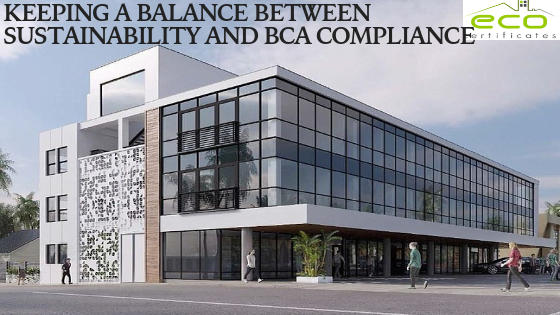Keeping a Balance Between Sustainability and BCA Compliance
As a sustainable and innovative workplace has become the norm for the current period, the energy-efficient solution to comply with the Building Code of Australia became a necessity for the organisations.
To acknowledge this, the Australian government started promoting changes to the National Construction Code (NCC) that will not only improve the number of compliance available but will also increase flexibility.
The NCC overhaul mainly focuses on BCA Section J, which is a part of the government’s strategy to minimise greenhouse gas emissions and increase the efficiency of Australian’s building up to 40 per cent by the year 2030.
The modifications produce energy savings for organisations up to 23 to 53 percent and are also considered as cost-effective.
Affected Building Types
Section J changes affect to class 2, 3 and class 5 to 9 of commercial buildings, and it also focuses on enhancing the strictness of the provisions. This can also be achieved by;
- Quantification of obligatory performance requirement
- The initialisation of NABERS Energy Commitment Agreement Verification Method
- Introduction of Green Star Verification Method
- Introduction of Commissioning Specifications
- Most improved state of on-site renewables like photovoltaics
- Specified thermal bridging needs, and manageable deemed-to-satisfy provisions
Residential buildings concerned are Class 1, sole-occupancy block class 2, and Class 4 parts of the buildings.
The focus for household buildings is to clarify provisions, increasing readability and do an agreement with current performance requirements.
Green Star and NABERS Verification
Changes in NCC will also allow organisations to use verification methods applied to achieve Green Star and NABERS ratings, to establish BCA compliance. This also means organisations can bypass the need for separate verification if they are committed to fulfill those ratings.
This will ultimately streamline the process as ratings require verification and independent review.
How does it Influence You?
These changes will present higher flexibility and more options for creating a sustainable workplace. It will also help organisations to achieve savings in a cost-effective manner. Moreover, the flexibility also means a greater focus on performance solutions, some of them will be harder to accomplish than others.
The NCC modifications have been released on February 2019 and came to effect on May 2019. For more information on the modifications and how you can optimize it for the sustainable workplace, visit Eco Certificates.




Comments
Post a Comment